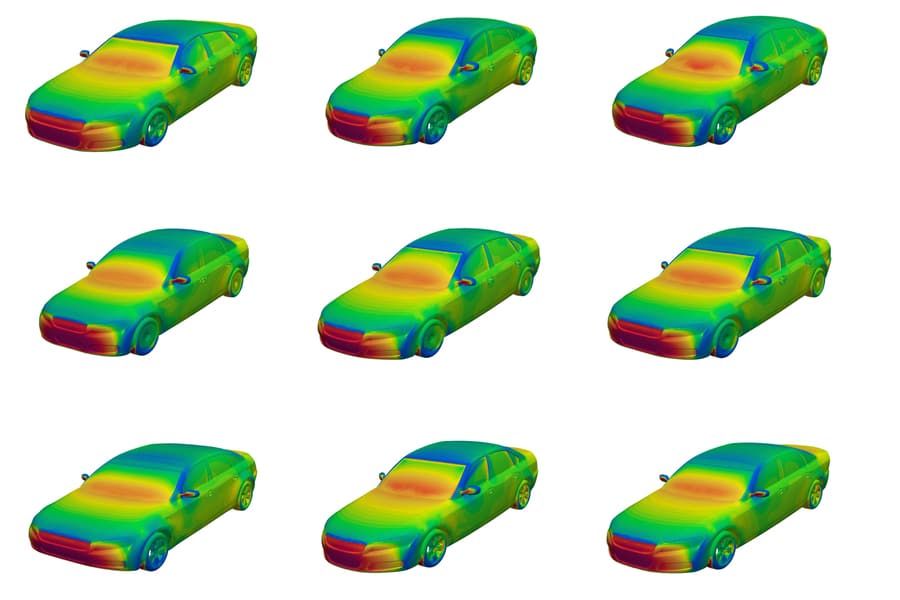MIT engineers have created the largest open-source dataset of car designs, complete with aerodynamic data, to accelerate the development of eco-friendly and electric vehicles.

Car design has traditionally been a slow, proprietary process, with manufacturers iterating for years on simulations before physical testing. The specifics, such as aerodynamic performance, remain confidential, leading to slow innovation in fuel efficiency and electric vehicle (EV) range.
MIT engineers aim to change this with DrivAerNet++, a newly released open-source dataset designed to accelerate car design using generative AI. The dataset includes over 8,000 3D car models, each detailed with aerodynamic simulations, enabling AI systems to analyze and generate novel designs rapidly. This centralized repository marks a significant step in democratizing car design innovation.
Each model in it represents common car types, such as sedans and station wagons, and includes representations in mesh, point cloud, or parameterized formats. This versatility allows AI models to process the data in their preferred modalities. Generated using morphing techniques on baseline designs provided by Audi and BMW, the dataset ensures physical accuracy through computational fluid dynamics simulations, offering insights into airflow and aerodynamic performance.
It is the largest open-source dataset of its kind and serves as a rich library for training AI models. These models can predict and optimize car designs in seconds, potentially leading to EVs with extended range or internal combustion vehicles with improved fuel efficiency.
The team highlights the urgency of faster innovations as transportation remains a major contributor to global pollution. With DrivAerNet++, researchers and manufacturers can now streamline car design, enhancing efficiency and sustainability without the need for expensive physical testing. This approach paves the way for rapid advancements in automotive technology, driving the transition to cleaner, greener vehicles.
“This dataset lays the foundation for the next generation of AI applications in engineering,” says MIT graduate student Mohamed Elrefaie, emphasizing its potential to reduce R&D costs and accelerate sustainable automotive innovation. His team, including MIT’s Prof. Faez Ahmed, Technical University of Munich’s Angela Dai, and BETA CAE Systems’ Florin Marar, will present the dataset at the NeurIPS conference.








